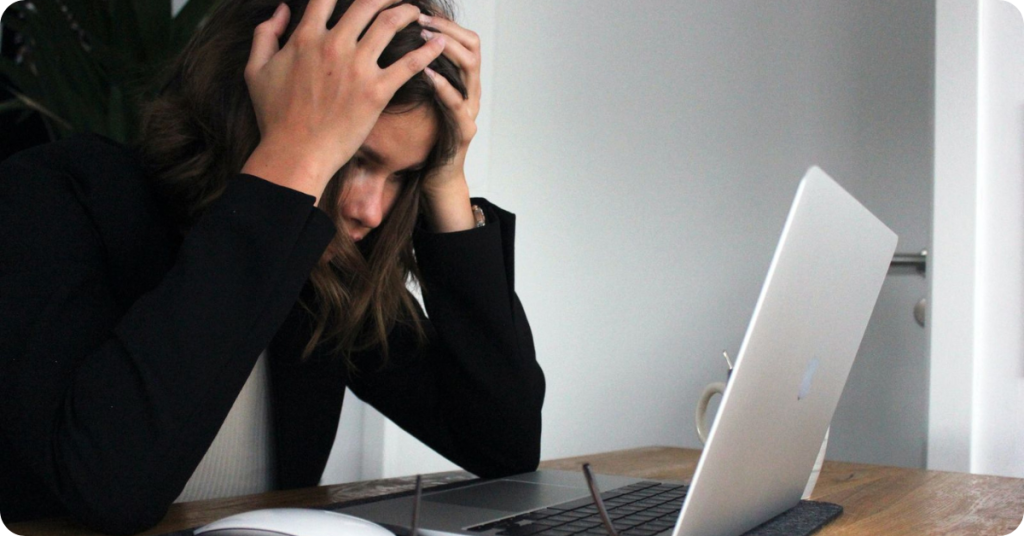4 Tips to reduce stress and anxiety at the workplace

Humans are designed quite efficiently. Few functions or features are superfluous. Even stress is an emotion that serves a purpose: detecting threats and sensing danger or change, vital skills in a caveman (and woman) world. To be fair, those skills are still very valuable today. The problem is that we haven’t evolved as fast as our society has progressed. We cannot adapt our stress reactions to the different kinds of stress we are faced with today: from being late for work, having to speak in front of a crowd (unpleasant but not life-threatening) to avoiding being hit by a car.
That inability to make sense of what survival is and what is bringing us down is the real problem in today’s society and workplace.
In this article, we look at some simple ways to cope with stress and anxiety in the workplace from the point of view of the employee:
- Owning your time
- Finding what feels good
- Little things make big days
- Managing stress at work is a team effort
Owning your time
In a classical workspace, it is rare for employees to have a lot of say in the way things are organized or how the days are laid out. They have limited influence on their environment. Tasks are assigned, and working hours are imposed. Not having control over things that impact you is one very important cause of anxiety in the workplace. If advocating for more flexibility with management is something to consider, one thing an employee usually always has power over is how to spend their breaks and lunchtime. Those are often overlooked as ways to positively impact one’s well-being and mental health at work.
Finding what feels good
There is no one-size-fits-all solution. We are all different and all react differently to stress and our environment. The first thing to do is identify the activities and settings that make us feel ‘good’.
Whether it is going to a yoga class at lunchtime, listening to classical music, having a stroll in the park, calling a friend, or even taking a nap, usually anything is better than eating quickly and mindlessly at the desk. It seems obvious, and yet, so many people often choose the latter because they are stressed. Finding what works and having a list of these small activities that can be done daily will be a good reminder that they have control over their day and can impact it positively. By taking a short break and literally removing themselves from the situation, they will eventually train their body and mind to see things differently and reduce their level of stress.
The more we practice those little ‘exercises‘, the more this skill develops. As time passes, we learn how to remove ourselves consciously from a difficult situation where we have fight-or-flight reactions. We bring ourselves to the here-and-now moment, and more often than not, realise that we are safe.

Little things make big days
It is so easy to get lost in the day-to-day and forget about the little things, but when we decide to look up from our screens, it is usually easy to find reasons to celebrate.
Celebrating one another is a wonderful way to create trust and a sense of community within a team. The more we feel like we belong and are safe with one another, the less stress or anxiety we experience.
A celebration can take many forms and shapes, from a proper party and champagne to a simple, grateful post-it on your colleague’s screen. Thinking of the little ways to bring a smile to someone’s face can be a wonderful stress reliever!
Fighting stress at work is a team effort
Practicing self-awareness and taking proper breaks are good ways to start improving everyday life at the workplace. They will not, however, cure the problem altogether. Indeed, a stressful environment is rarely created by the employee alone.
Anxiety and stress at the workplace are consequently something that should be addressed at the management level as well, rather than being pushed solely on the employee to take care of.
It is not just about advising employees to ‘take a deep breath’ but creating opportunities for that to happen. It is about creating physical and virtual spaces for them to safely bring up the cause of their stress, actively listening, and implementing new ways to empower them.
Want to know more about how Siffi is helping organisations? Check out our services
About the author

Morgane Oléron
Psychology Content Writer at Siffi
Morgane crafts compassionate, engaging content that makes mental health conversations more human and accessible. At Siffi, she combines storytelling with strategy to foster a culture of care and connection in the workplace.
Recent Posts
-
The 5 key habits of highly successful companies in employee mental wellbeing17 Nov 2025
-
Supporting 'Survivor's Guilt' after layoffs: HR’s role in secure, purposeful recovery10 Nov 2025
-
Breaking the silence: Supporting men's mental health in your workplace03 Nov 2025
-
Mental health informed performance management: A guide for HR27 Oct 2025
Newsletter
Sign up for our newsletter and get monthly tips and tricks for better mental well-being from our certified therapists and coaches.

